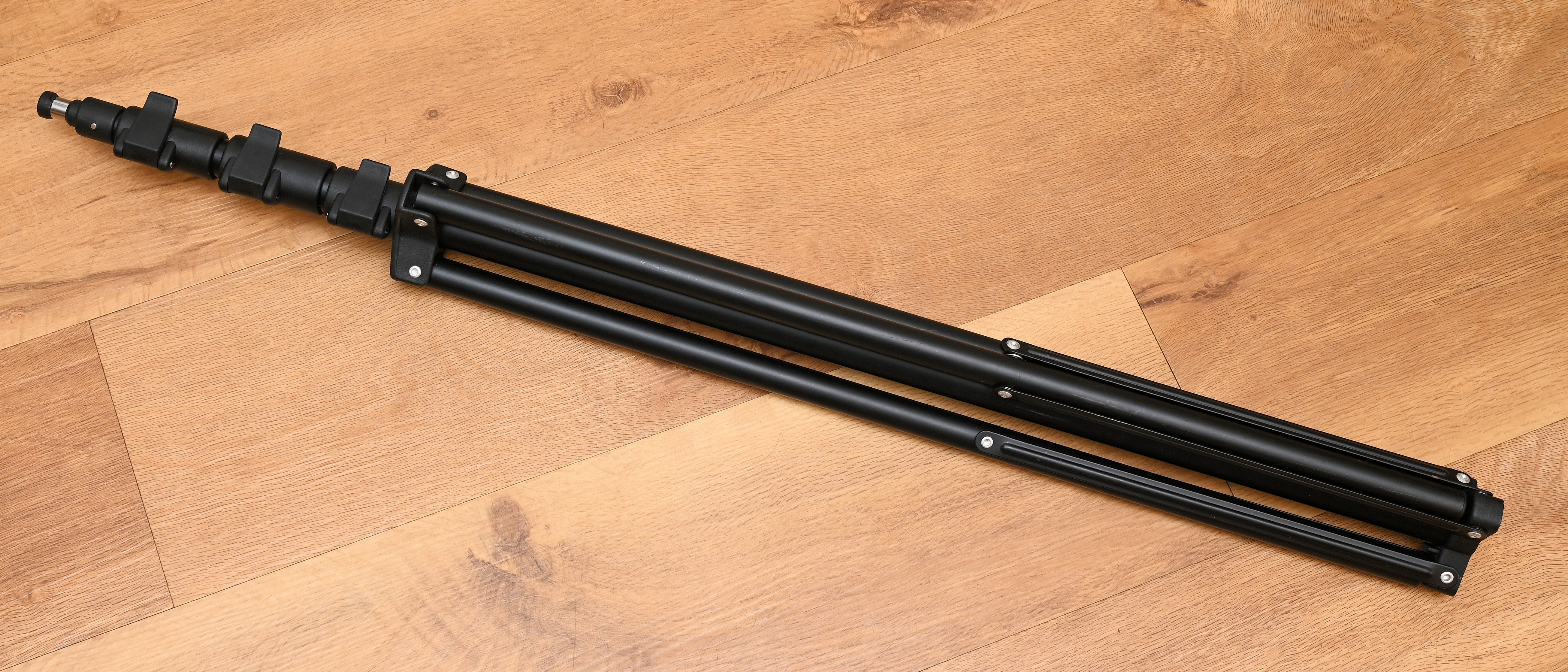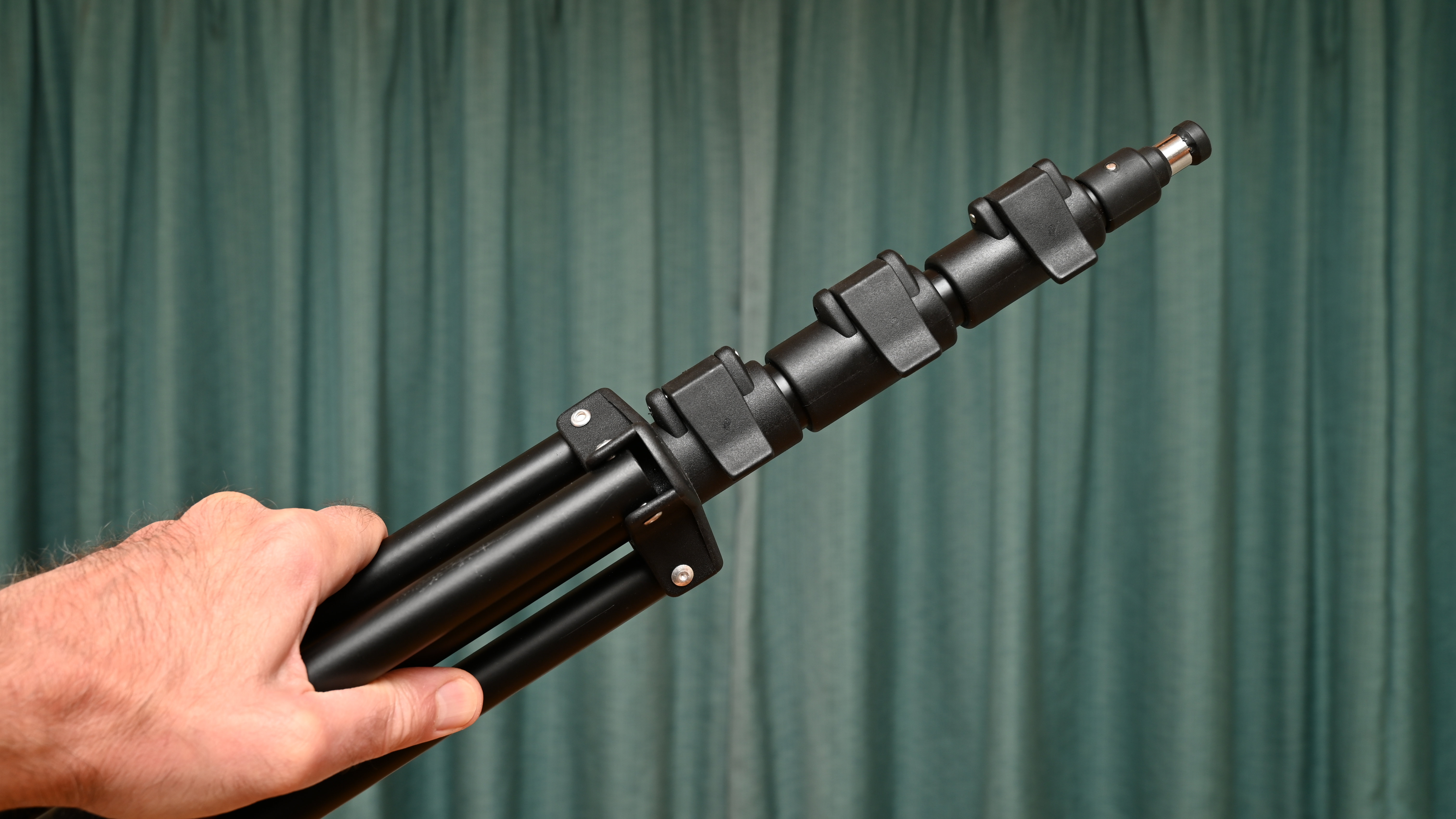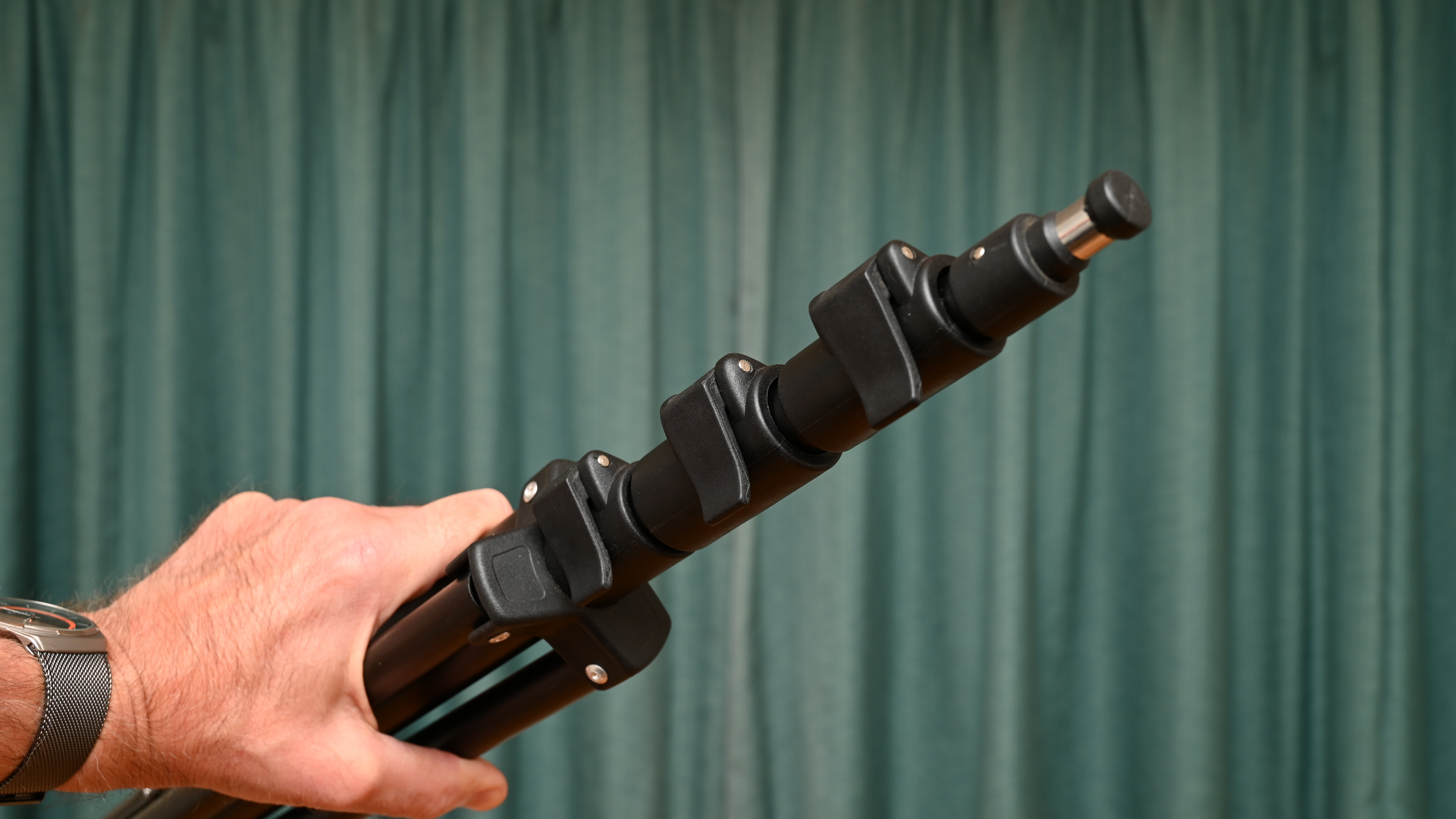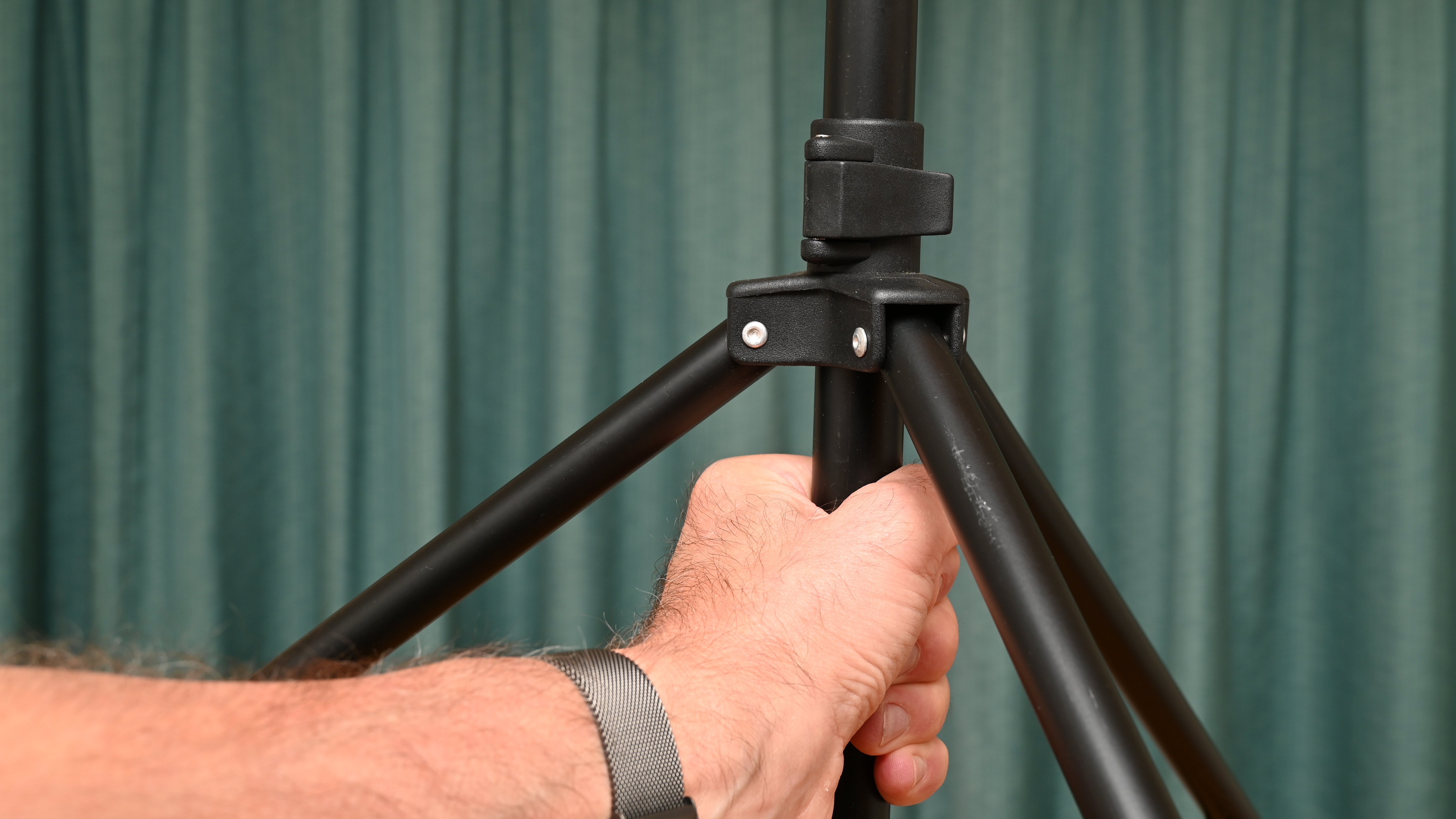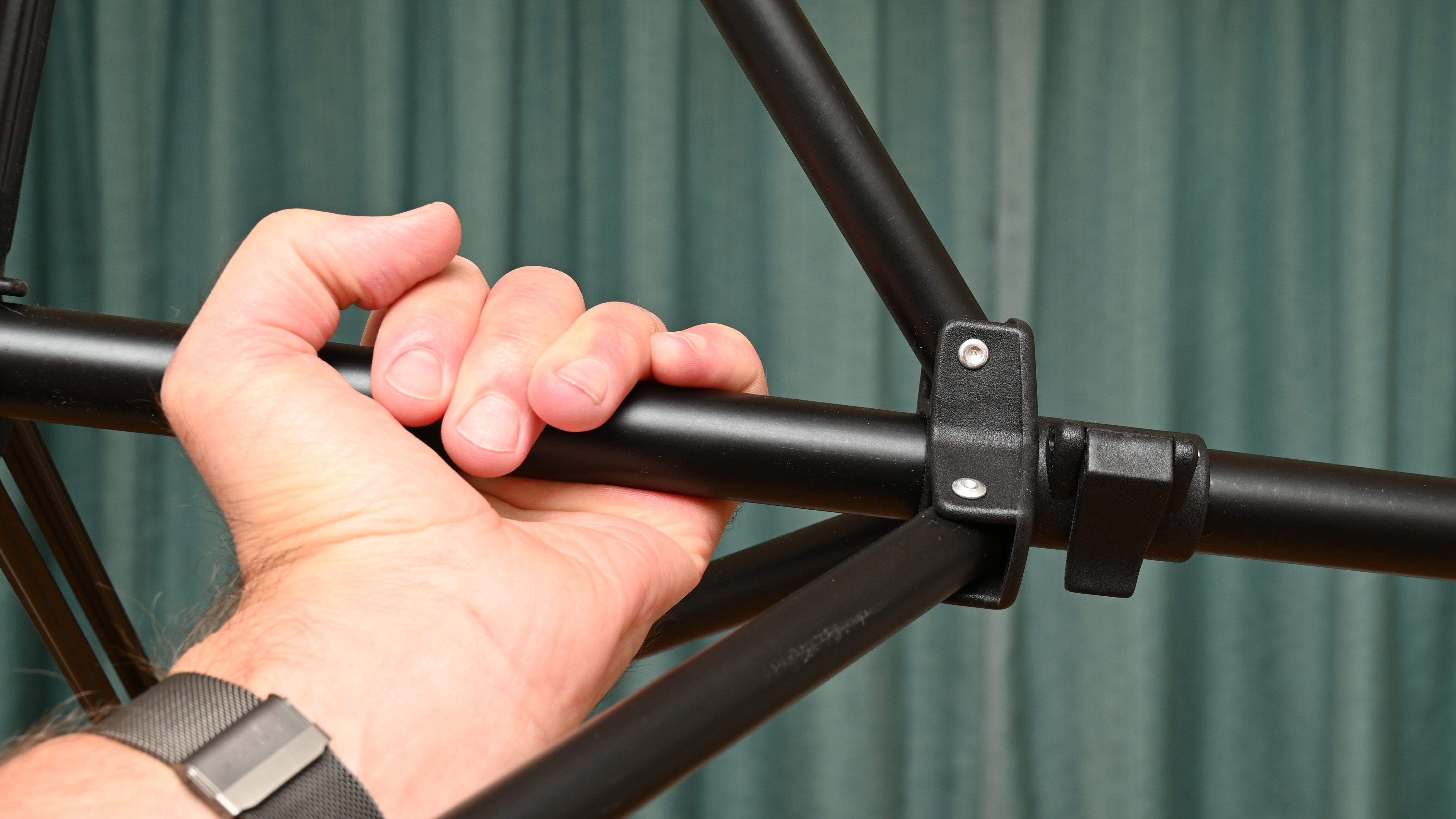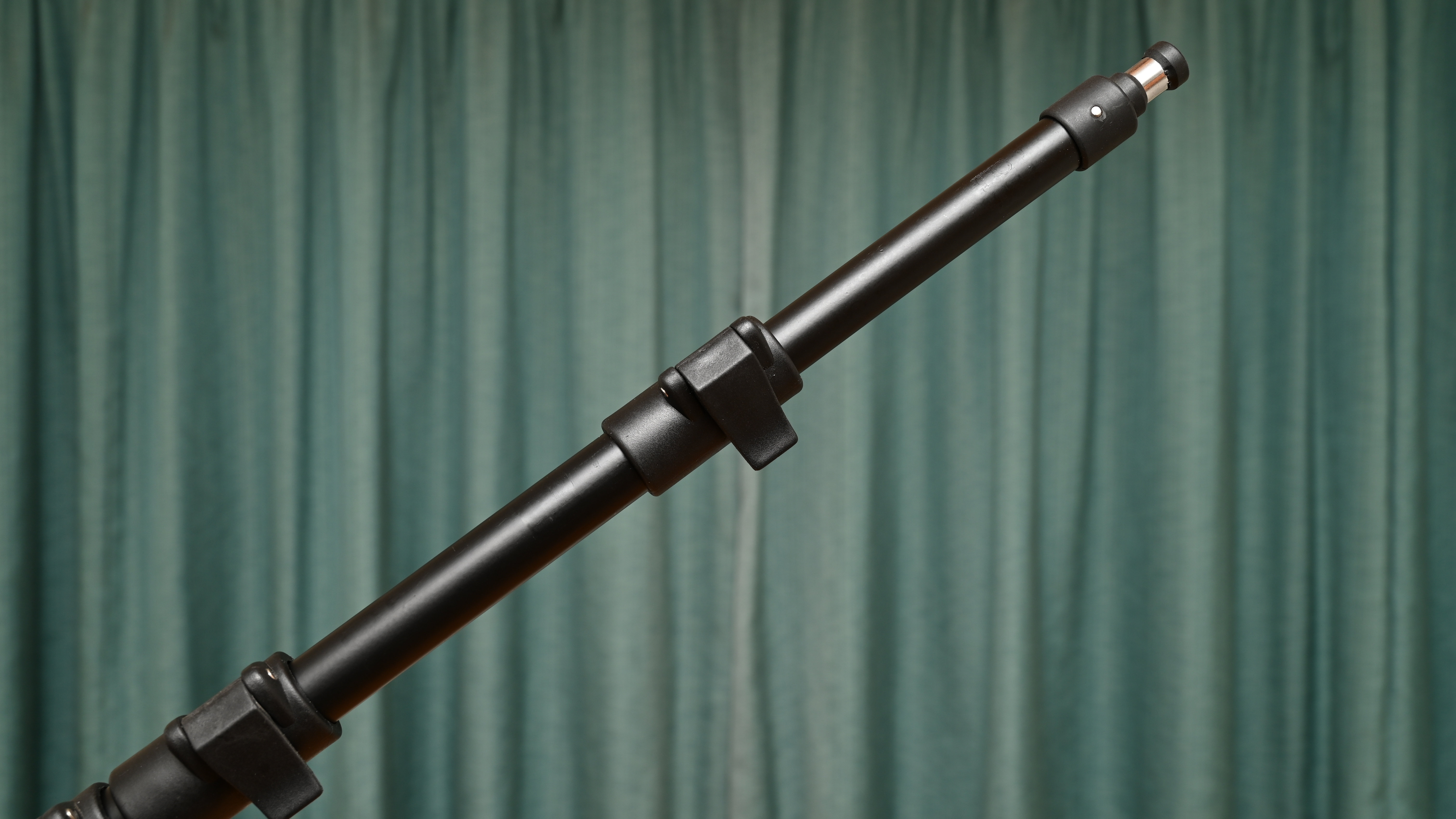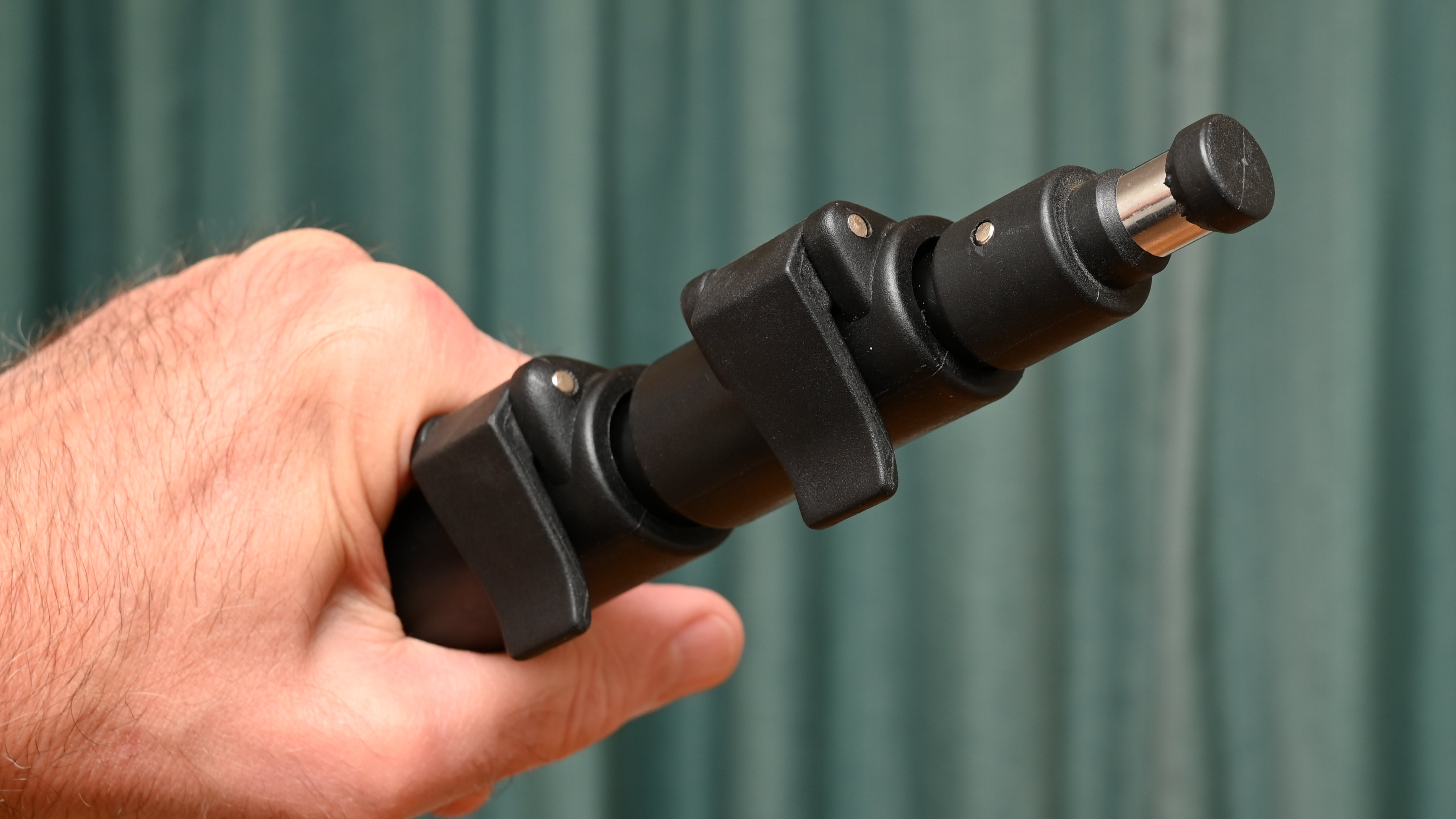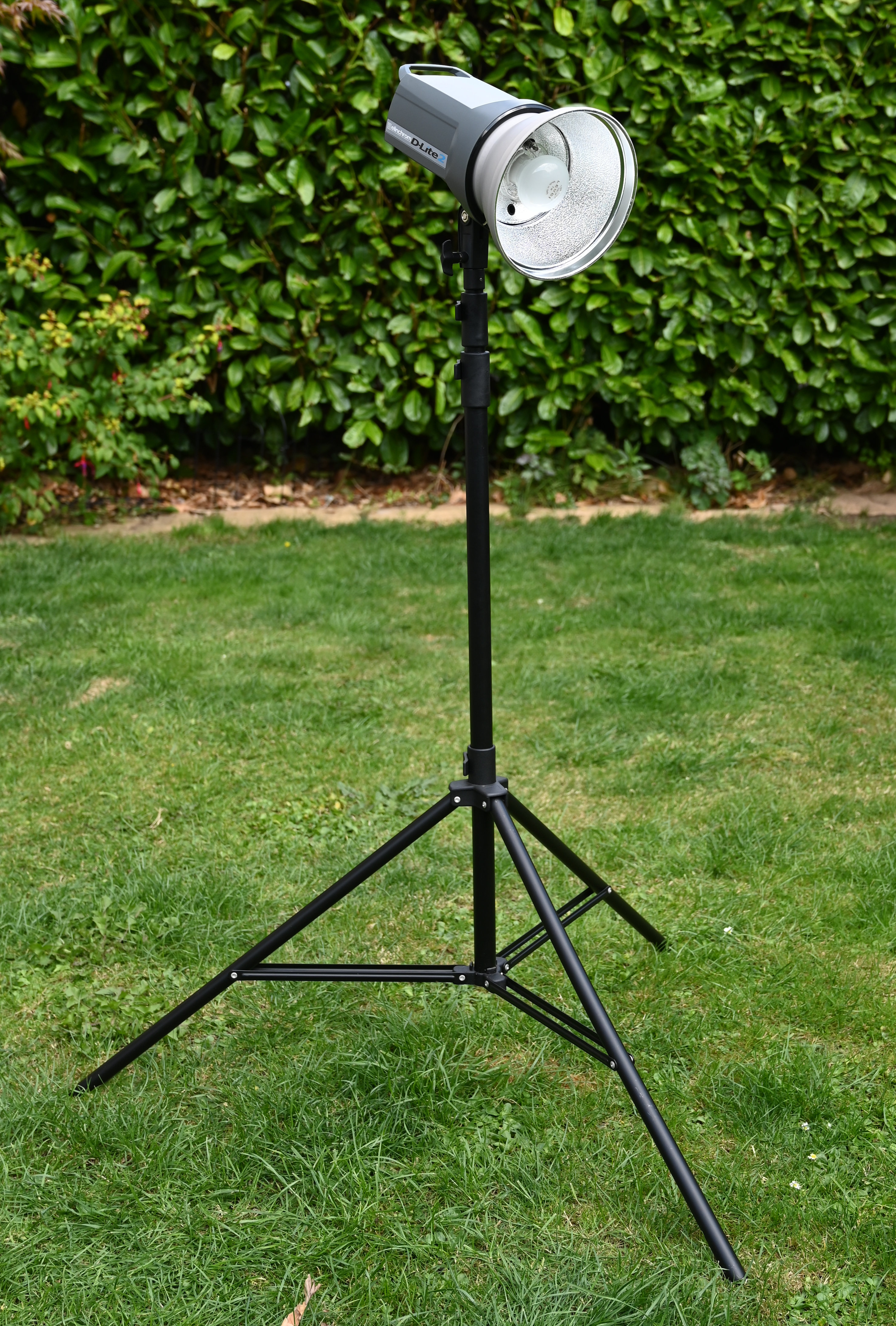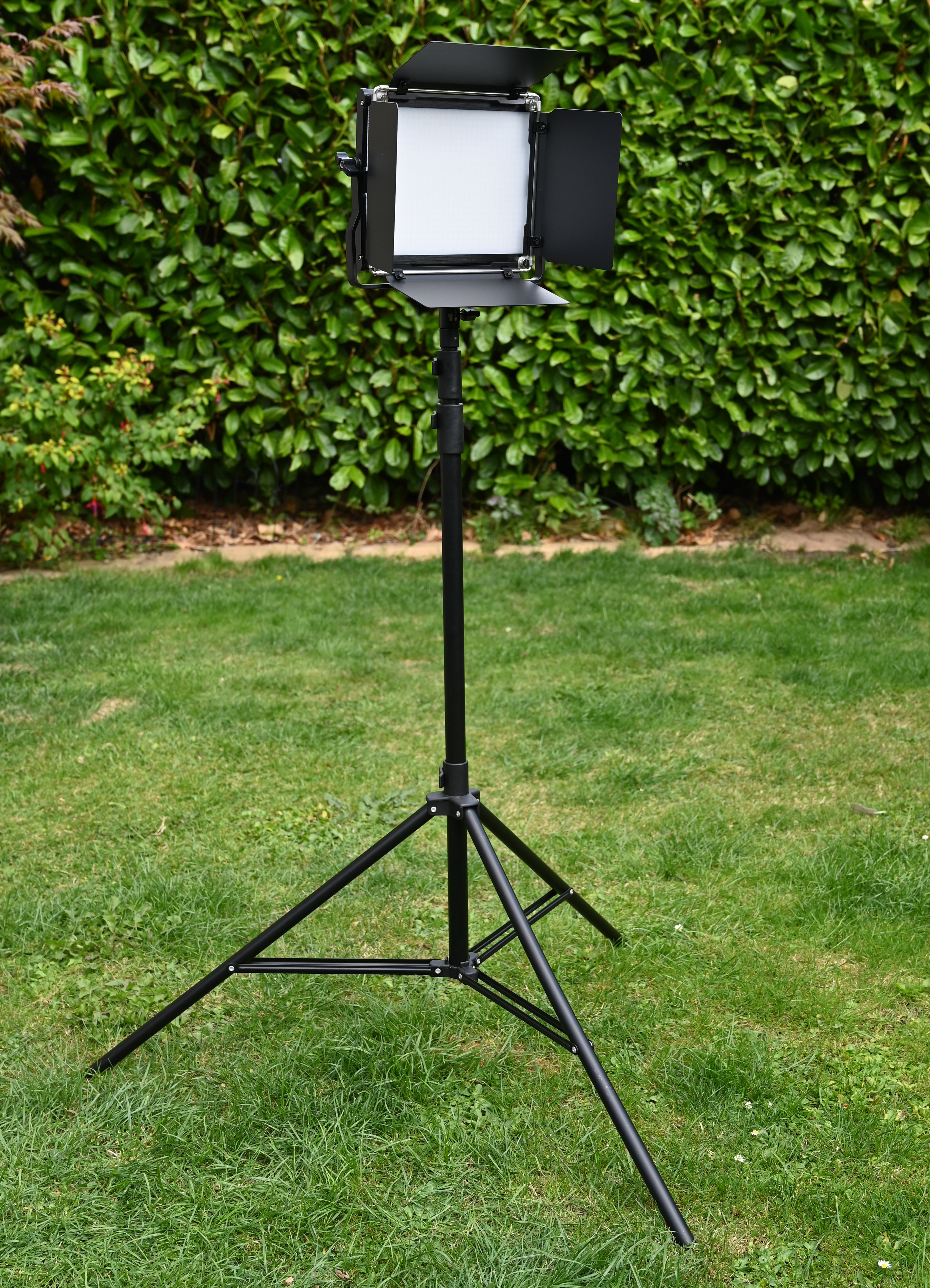Digital Camera World Verdict
The Elinchrom Lighting Stand is made by one of my all-time favorite lighting companies. Like Elinchrom studio flash heads, I find the stand very easy to use, well made and utterly dependable. It lacks a few mod cons but is good value for a basic stand.
Pros
- +
Generous 235cm / 7.7' maximum height
- +
Solid and stable
- +
Great quality and ease of use
Cons
- -
No spring protection nor air cushioning
- -
No 1/4"-20 screw attachment
Why you can trust Digital Camera World
Elinchrom is one of the very best names in the business when it comes to studio and location flashheads. It doesn’t stop there though, as Elinchrom offers a range of full kits that include everything you need for pretty much any lighting scenario, at home and away.
The light stand that I’m reviewing here is included with many Elinchrom kits and is also available as a separate purchase. All in all, it’s one of the best light stands in its own right, as well as offering stable support for the best photography lighting kits and the best LED light panels.
Elinchrom Lighting Stand: Specifications
| Max height | 235cm / 7.7' |
| Min height | 88cm / 2.9' |
| Load capacity | 5kg / 11lb |
| Weight | 1.45kg / 3.2lb |
| Top mount | 5/8" receiver |
Elinchrom Lighting Stand: Price
The Elinchrom Lighting Stand isn’t the cheapest around, priced at $50/£54, and that doesn’t include a carrying bag. That said, you can buy a twin-pack of the stands for about $187/£115 which not only doubles up on stands but also includes a particularly nice, high-quality soft case. The latter can actually be easier to find in retailers across some world regions, but is comparatively expensive in the USA.
Elinchrom Lighting Stand: Design & Handling
One of the things that I like most about Elinchrom flash heads is that they’re generally so simple and intuitive to use. The same goes for this lighting stand. It’s an absolute breeze to set up, with clip-action clamps for the foldout 3-leg base as well as for the three center column sections. That means there are no fiddly and relatively time-consuming screw-action T-handles to contend with.
Some similarly budget-friendly light stands tend to be a bit lacking in maximum operating height. The Elinchrom is generous in this respect, stretching through a range of 88cm / 2.9' right up to 235cm / 7.7'. The upshot is that even if you’re taking a portrait of a tall adult standing up, there’s enough height on tap to light them at a natural downward angle.
The next thing that I like is that the stand shares the same impressive level of build quality that Elinchrom puts into its flash heads, triggers and other accessories. The base section legs and telescopic column sections are all made from high-grade aluminum, with robust and solid-feeling joints holding them together.
The three column sections have diameters of 25.5/22.5/19.5mm, and the three legs also have a 19.5mm diameter to match the topmost column section. With a length of 60cm / 23.5", the leg sections give a maximum operating length of 51cm / 20", as measured from the point on the floor directly beneath the column to the foot of any given leg. The overall outcome is that the stand feels sturdy and robust, and resistant to toppling over when in use.
The best camera deals, reviews, product advice, and unmissable photography news, direct to your inbox!
One thing I’m not so keen on is that the telescoping column sections don’t have any springs to soften the impact if you drop one of them accidentally, and there’s no air cushioning to dampen the movement. There’s also no 1/4"-20 screw thread built into the 5/8" receiver up on top, although adapters are cheap to buy separately. Instead, the receiver has a plastic cap which can actually be preferable, as it avoids the risk of stabbing the mounting foot of your lamp with a protruding ¼” stud when you’re fitting it to the stand.
Elinchrom Lighting Stand: Performance
When set up for use, the feet of any two of the three legs have a maximum distance of about 86cm / 34” between them. For me, that’s an ideal compromise between giving a large enough spread to offer sturdy support with resistance to toppling over, while being small enough to shoot in small spaces and work around furniture and other obstacles. Even at the maximum operating height of 235cm / 7.7', the stand feels really solid and stable, in keeping with its 5kg / 11lb maximum load rating.
To put the load rating into perspective, I tested the stand with an Elinchrom D-Lite 2 flash head plus wide-angle reflector, which weighs in at 1.3kg / 2.9lb, and a Neewer NL660S LED light panel fitted with two rechargeable battery packs, weighing 2kg / 4.4lb.
Although there are no safety springs nor air cushioning in the center column, movements are smooth and glide easily with a good level of tactile feedback. The clip locks for the foldout legs and center column are super-quick and easy to use, making all adjustments speedy and effortless. Moreover, when in their locked position, the clip locks are completely resistant to any unwanted slipping.
Elinchrom Lighting Stand: Verdict
I’ve been using Elinchrom Lighting Stands for many years now. In fact, mine came as part of a kit with a D-Lite studio flash head system. Like the heads themselves and the wireless trigger, I’ve found the light stands to be utterly dependable, of impressive build quality and incredibly intuitive and easy to use. It’s simply an excellent light stand at a very fair price.
| Features | It has everything you need, although lacks safety springs or air cushioning in the column. | ★★★★☆ |
| Design | The design combines quick and easy use with a generous maximum operating height and compact stowage. | ★★★★★ |
| Performance | For a fairly lightweight full-height light stand, it’s really robust and sturdy. | ★★★★★ |
| Value | You can buy cheaper light stands but this one is great value considering its build and performance. | ★★★★★ |
Should you buy the Elinchrom Lighting Stand?
✅ Buy this...
- You want a full-height light stand that folds down fairly small and is quite lightweight but robust.
- You like a stand that’s really quick and easy to use but offers very good performance.
🚫 Don't buy this...
- You’re put off by the lack of safety springs or air cushioning in the extending column.
- You’d rather have a more heavy-duty light stand for really weighty flash heads or LED panels.
Matthew Richards is a photographer and journalist who has spent years using and reviewing all manner of photo gear. He is Digital Camera World's principal lens reviewer – and has tested more primes and zooms than most people have had hot dinners!
His expertise with equipment doesn’t end there, though. He is also an encyclopedia when it comes to all manner of cameras, camera holsters and bags, flashguns, tripods and heads, printers, papers and inks, and just about anything imaging-related.
In an earlier life he was a broadcast engineer at the BBC, as well as a former editor of PC Guide.
